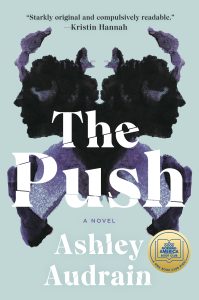
If you have ever wondered why so many people feel unwell in a world overflowing with medical breakthroughs, The Myth of Normal will feel like a cold splash of water. Gabor Maté, writing with his son Daniel Maté, argues that suffering is not an individual malfunction but a social signal. The book challenges the idea that what we call normal is healthy, and it asks readers to question the cultural air we breathe.
What the Book Tries to Do
Across four decades of clinical work, Maté has seen how chronic stress, attachment wounds, and social pressures show up in the body. He connects trauma to a wide spectrum of conditions, from addiction to autoimmune disease, and he pushes for a truly biopsychosocial model of medicine. In plain terms, he believes healing requires us to look at the whole person within a larger cultural system that prizes productivity, speed, and profit over human needs.
Where the Book Lands in Today’s Debate
One of the liveliest responses to The Myth of Normal frames it against the popularity of Jordan Peterson. That comparison is useful because it highlights two diverging paths. Peterson leans into traditional hierarchy and individual discipline as a remedy for modern chaos. Maté focuses on the harms of a culture organized around extraction and disconnection. Both speak to meaning and responsibility, yet Maté insists that personal healing and social repair belong in the same sentence. Whether or not you agree, the contrast clarifies what this book is doing: it refuses to treat distress as only a private matter.
How Readers Are Responding
- Readers who felt seen: Some, like Danny, describe the book as a compassionate reframe. Instead of labeling addictions and coping behaviors as moral failures, Maté treats them as survival strategies that once kept a person alive. That shift can be profoundly relieving. It invites self-inquiry, not self-condemnation, and it opens a path toward authentic change.
- Readers who felt overwhelmed: Others have the opposite reaction. Elyse’s take is blunt. Eighteen hours of audiobook left her flooded with problems and thin on actionable hope. For her, the sheer scope of the critique felt paralyzing. If everything is broken, what exactly should a parent, a clinician, or a struggling patient do tomorrow morning?
- The political reading: Another detailed review reads the book as a systems critique. It praises Maté’s use of newer science on epigenetics and complex systems, and it argues that a reductionist, purely material lens misses how social context shapes biology. From that angle, The Myth of Normal is not pessimistic at all. It is a call to rebuild our social commons so individual care can work.
Strengths
- A humane lens on addiction and trauma
Maté’s central question is disarming. Not why the addiction, but why the pain. He treats symptoms as messages. That stance encourages curiosity over shame. - Clear synthesis of science and story
The authors translate research on stress physiology and attachment into everyday language, grounding ideas in clinical vignettes. You finish chapters feeling like the body is trying to talk to you, not betray you. - Bridges personal and social
The book refuses false choices. It asks for inner work and systemic change, reminding us that resilient individuals grow best in resilient communities.
Limitations
- The firehose problem
The canvas is massive. If you need a tight playbook, the sweeping critique can feel like a wave that knocks your feet out from under you. - Practical steps sometimes blur
Maté offers practices around self-inquiry, boundaries, and trauma-informed care, but they sit inside big arguments about culture. Some readers will want more checklists and fewer chapters. - Tone can read as heavy
Naming harm is necessary, yet the emotional weather of the book skews gray. Sensitive readers may need to pace themselves.
What You Will Take Away
- A new definition of health: Not the absence of symptoms, but the presence of connection, authenticity, and safety in the nervous system.
- A new reading of your past: Coping was resourceful when it began. Growth starts by honoring that resourcefulness and then learning new patterns.
- A wider map for care: Therapy, medicine, community, and policy belong together. A clinic visit is not the whole story.
Who This Book Is For
- Readers exploring trauma, addiction, burnout, or chronic illness who want a compassionate framework that respects both biology and biography.
- Clinicians, teachers, and caregivers seeking a trauma-informed lens that connects individual struggles to social conditions.
- Systems thinkers who suspect that our public health crisis will not be solved by prescriptions alone.
My Verdict
The Myth of Normal is a bracing, generous book that asks hard questions without pathologizing people. It can feel heavy, and at times the solutions are more compass than roadmap. Still, the compass points somewhere worth going. If you read it with a pen, a friend, and a plan to take breaks, you may come away with more self-respect and a deeper sense that your body has been making sense all along.
Rating: 4 out of 5
If You Want to Read It
Ready to dive in and decide for yourself
Buy The Myth of Normal on Amazon: https://amzn.to/4nKGS83


